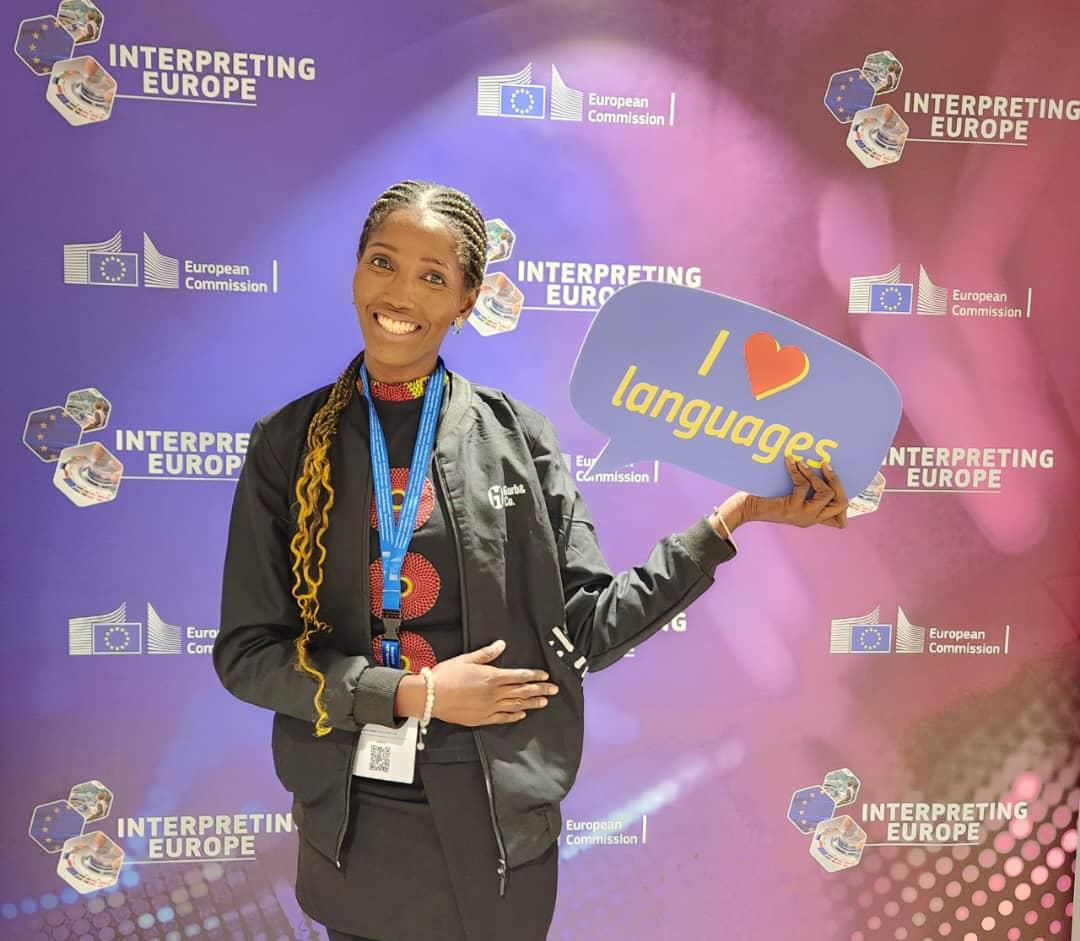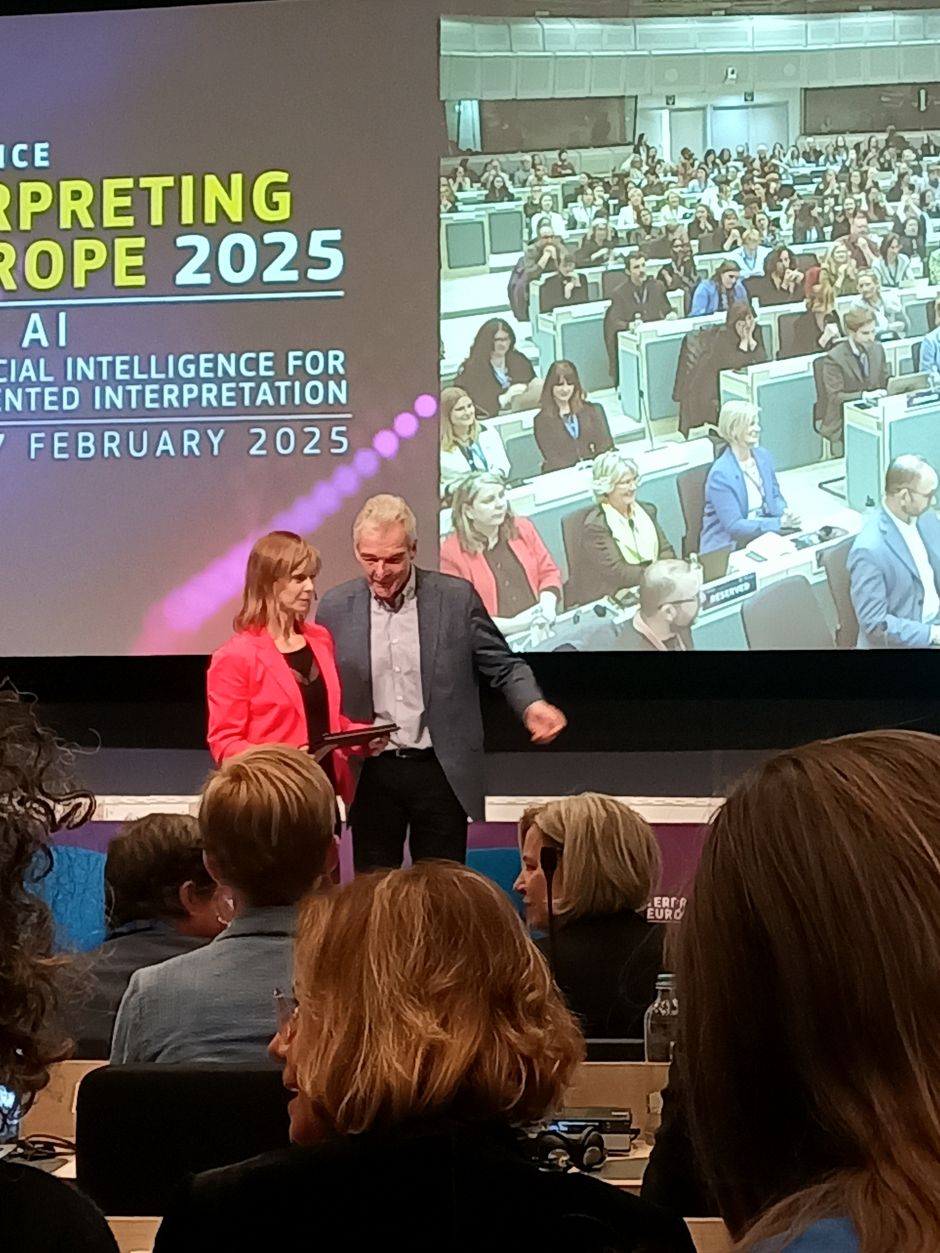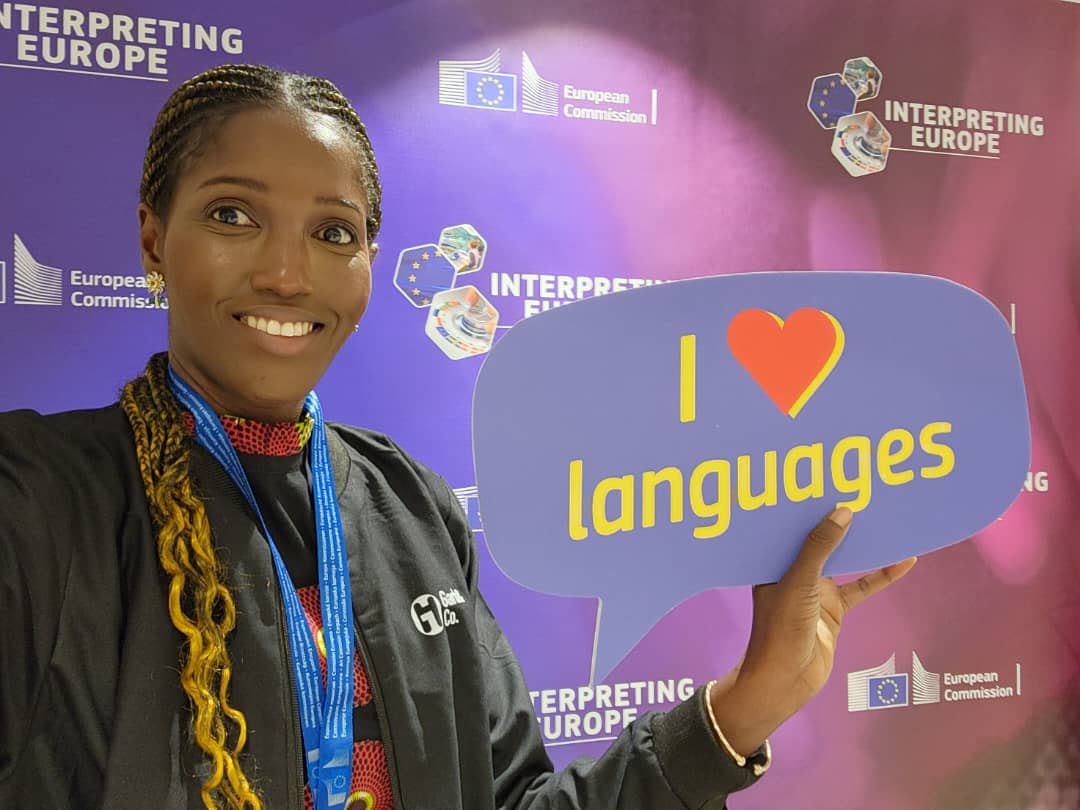
Preparing the Next Generation of Interpreters in Africa
The premier tertiary institution, the University of Ghana, has been training conference interpreters for the continent since 2012. Over the years, the M. A. Conference Interpreting programme has gained a solid reputation as a centre of excellence for interpreter training as its graduates succeed on the market. As part of efforts to keep the curriculum relevant and up-to-date, the programme coordinator participates in conferences, workshops and webinars which focus on Interpreting.
One of such conferences which Ms Pamela Amoah, MA CINT coordinator, attends regularly is the European Commission's Directorate-General for Interpretation (DG-SCIC) annual Interpreting Europe Conference. The biggest interpreting conference was held on February 6-7, 2025, at the Commission’s Charlemagne building in Brussels, Belgium. This event brought together renowned experts and professionals in the field of interpretation to explore the future of the profession, with a focus on Artificial Intelligence (AI) and language technologies. The conference highlighted the growing importance of understanding the role of AI in shaping the future of interpretation.
Highlights of the event included:
- A roundtable discussion on AI-enhanced interpretation, highlighting how to leverage AI to the interpreter’s advantage
- A conversation with the legendary Franz Pöchhacker on the past, present, and prospects of interpreting
- A panel debate on the limitations and potential of AI-powered interpretation, where Andreas Witt, Judith Simon, Allison Graves, and Claudio Fantinuoli shared their views on pros, cons, and ethics surrounding AI
- A TED-style talk by Davor Orlič from the International Research Center on Artificial Intelligence (IRCAI), focusing on recent advancements in AI-enhanced interpretation and
- A fireside chat on future-proofing the interpreting profession, featuring Alexandra Panagakou, Director of Interpreters at the Directorate-General for Interpretation, and Kilian Seeber, Vice-Dean of the interpreting department at the University of Geneva.

DG-SCIC has uploaded the recordings on their YouTube channel and website. This conference was followed by a recent webinar on "AI-tools in the booth and cognitive load," based on research undertaken by Prof. Dr. Bart Defranq and Ms. Ana-Maria Pleșca from Ghent University. The study examined the cognitive load and usability of AI in the booth during real conferences and with EU staff interpreters. Findings showed no change in cognitive load with or without the use of AI. The question however remains on whether there was an enhancement of the interpreting with the use AI compared to without. Moreover, ethical issues, such as confidentiality, need to be front and centre of every discussion on AI and technology to protect the vulnerable and prevent abuse.
In light of rapid technological advancements, Ms Amoah recognizes the need to equip interpreters with the skills to both effectively and ethically utilise language technologies and AI. The MA CINT programme is committed to training interpreters not just for the current market but for the future. By staying abreast of the latest developments in AI and language technologies, the programme aims to equip its students with the right tools and knowledge to thrive in a rapidly evolving field.
The programme's forward-looking approach ensures that graduates are well-prepared to meet the challenges and opportunities presented by AI and language technologies. With industry partnerships, such as educational licenses from Interpreter’s Help (Boothmate) for glossary management, with research, and with continuous collaboration with leaders in the field, the MA CINT programme is set to play a key role in shaping the future of interpretation in Africa.

